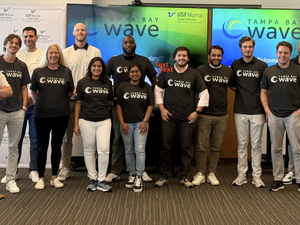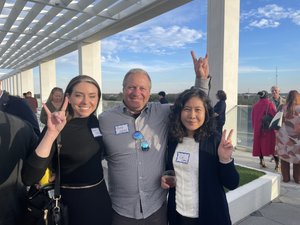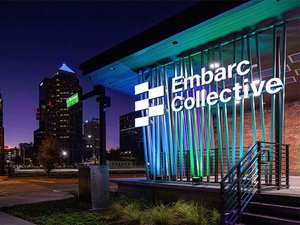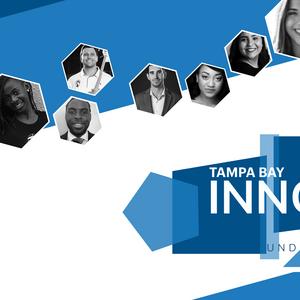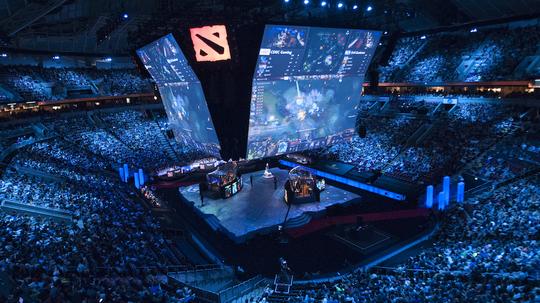
Tampa Bay and national experts alike came together under the University of South Florida Muma College of Business roof to discuss the culture, business and future of the esports gaming world, which has turned into a billion-dollar industry.
The leagues, professional players and business opportunities that now make up the still-growing industry were broken down by experts at the USF's first esports conference. Here are some of the top takeaways from the experts.
Education needs to be done to show this goes beyond gaming.
"This isn’t Mario from the ’80s," Troy Carnrite, partner at Bradley Arant Boult Cummings, said. "I get it all the time — 'Why would you watch people play games?' Well, have you played a game recently? You're problem-solving, using analytics skills, hand-eye coordination. And these teams have a training regimen on the physical end and to stay mentally sharp. Part of the education process is showing it's not just people sitting around on the couch with Cheetos and Mountain Dew. This takes a lot of practice, focus and mental ability. If you don't get it, I challenge your intelligence because it's not that you may not get it. You don't see the value of it."
While it's still young, the opportunities for the industry are rapidly ramping up.
• "Even though there are billions of dollars invested, it's still an emerging industry," Carnite said during the Business of Esports panel. "This is still in its infancy, even with all the money. From 2014-17, there were nine private equity deals. In 2018 alone, there were 14. So this is really starting to pick up but it's not even close to mature. It's incredibly fun to be involved with challenging industries, to see where it goes next. But this is not a mature industry, so brands and companies can still shape the way it goes."
• "There are different ways I want to bring people to esports, whether it's education in college or schools, because it's a grassroots effort," William Le Voir-Barry, chief technology officer of esports and video games at IBM, said. "It is, by nature, community driven and big companies like myself respond to community much more than other industries."
• "I'm excited to continue to see the youth build the sport," Jordan Bellar, global partnerships at Harris-Blitzer Sports and Entertainment, said. "There are so many out there with different passions and all you need is an internet connection. On the business side, it shows how many opportunities there are to work in the industry — there's marketing, social media, analytics. There are all these needs and we need more people as it continues to grow."
Esports is easily accessible.
"Esports is blind to gender, race, nationality and access is extreme," Todd Harris, co-founder of Atlanta-based Hi Rez Studios and president of Skillshot Media, said. "You're lucky you're here with a great hockey team with arenas. A lot of kids will never be a hockey player because they don't have that access. But if you have a computer and internet connection, there is nothing standing between you being the best player in the world except your time and dedication."
However, there is more work to be done to ensure everyone can access esports.
"Even though gaming is inclusive, anyone can play the game and it's diverse, there is still a digital divide," Derek Watford, founder of High Point Gamer, said during a Future of Esports panel. "They can't create content, they can't stream because they're missing the resources — whether they don't have high-speed internet, a computer or the games. There is someone in this community that has no idea this is around and that it can benefit them.
"Internet is the main barrier in lower economic areas," Watford said. "Maybe someone can set up a hub where it's the same as a hotel. You can do that in these communities and then can even be sponsored by someone — 'Thank you T-Mobile for giving me internet.'"
Esports and traditional sports aren't that different.
"We now have leagues and the business side of esports has taken off," Jeff Vinik, owner of the Tampa Bay Lightning, said. He also is the co-executive chairman of aXiomatic Gaming. "Originally, it was endemic sponsors. Now, there's Coke and General Mills. You can find the same sponsors who are supporting the NFL or NHL supporting esports. It's quite amazing, how that's progressed and how it's growing.
"The revenue streams are very similar, whether it's media, whether it's sponsors, whether it's tickets to events. It's actually very similar to traditional sports," Vinik said.
Tampa Bay has taken notice of esports.
"If you have an interest in this, there are a lot of people in the city that do this," Patrick Abts, director of social media for the Tampa Bay Lightning, said. "The Tampa sports network brings huge events and there's the need to organize and make your voice heard. So, if you have the interest and a community already — whether it's close knit or wider-range — there's a lot of opportunity. But it's ill-defined and it's because a lot of executives don't have that understanding yet. So making that voice heard and showing the interest can be a huge help."

